P6905
Polythymidylic acid sodium salt
homopolymer
Synonyme(s) :
Poly(dT)
Se connecterpour consulter vos tarifs contractuels et ceux de votre entreprise/organisme
About This Item
Produits recommandés
Vous recherchez des produits similaires ? Visite Guide de comparaison des produits
Application
Polythymidylicacid sodium salt has been used as a control to compare with poly(A) in aforce-extension experiment to investigate differences in mechanical properties. Polythymidylic acid (Poly(dT)) may be used to study the characteristics of single-stranded DNA binding proteins.
Actions biochimiques/physiologiques
Polythymidylicacid, also known as poly-deoxythymidine (poly-dT), has various applications inmolecular biology research. One of its most common uses is for mRNApurification, where it is utilized to isolate mRNA from a mixture of RNAmolecules for the preparation of cDNA libraries. In addition, poly-dT can beused as a tool for the detection of microbial contamination in water samples.It can also be used for the purification of mRNA-protein fusion molecules inmRNA Display selections.
Définition de l'unité
One unit will yield an A260 of 1.0 in 1.0 ml of water (1 cm light path).
Code de la classe de stockage
11 - Combustible Solids
Classe de danger pour l'eau (WGK)
WGK 3
Point d'éclair (°F)
Not applicable
Point d'éclair (°C)
Not applicable
Équipement de protection individuelle
Eyeshields, Gloves, type N95 (US)
Certificats d'analyse (COA)
Recherchez un Certificats d'analyse (COA) en saisissant le numéro de lot du produit. Les numéros de lot figurent sur l'étiquette du produit après les mots "Lot" ou "Batch".
Déjà en possession de ce produit ?
Retrouvez la documentation relative aux produits que vous avez récemment achetés dans la Bibliothèque de documents.
Les clients ont également consulté
Alexander G Kozlov et al.
Biochemistry, 49(38), 8266-8275 (2010-08-28)
Deinococcus radiodurans single-stranded (ss) DNA binding protein (DrSSB) originates from a radiation-resistant bacterium and participates in DNA recombination, replication, and repair. Although it functions as a homodimer, it contains four DNA binding domains (OB-folds) and thus is structurally similar to
Byul Nim Oh et al.
Dalton transactions (Cambridge, England : 2003), 40(24), 6494-6499 (2011-05-13)
In this study, an assay to quantify the presence of mercuric ions and methyl mercury by double-stranded DNA containing a poly(dT) sequence was developed using a light switch compound, Ru(phen)(2)(dppz)(2+) (1), which is known to intercalate into double-stranded DNA. Upon
Gregor Witte et al.
Nucleic acids research, 33(5), 1662-1670 (2005-03-23)
The highly conserved bacterial single-stranded DNA-binding (SSB) proteins play an important role in DNA replication, repair and recombination and are essential for the survival of the cell. They are functional as tetramers, in which four OB(oligonucleotide/oligosaccharide binding)-folds act as DNA-binding
Paweł Filipkowski et al.
Extremophiles : life under extreme conditions, 10(6), 607-614 (2006-08-10)
We report the identification and characterization of the single-stranded DNA-binding protein (SSB) from the mesophile and highly radiation-resistant Deinococcus radiopugnans (DrpSSB). PCR-derived DNA fragment containing the complete structural gene for DrpSSB protein was cloned and expressed in Escherichia coli. The
Józef Kur et al.
Acta biochimica Polonica, 52(3), 569-574 (2005-08-06)
Single-stranded DNA-binding proteins (SSBs) play essential roles in DNA replication, recombination, and repair in bacteria, archaea and eukarya. The SSBs share a common core ssDNA-binding domain with a conserved OB (oligonucleotide/oligosaccharide binding) fold. This ssDNA-binding domain was presumably present in
Notre équipe de scientifiques dispose d'une expérience dans tous les secteurs de la recherche, notamment en sciences de la vie, science des matériaux, synthèse chimique, chromatographie, analyse et dans de nombreux autres domaines..
Contacter notre Service technique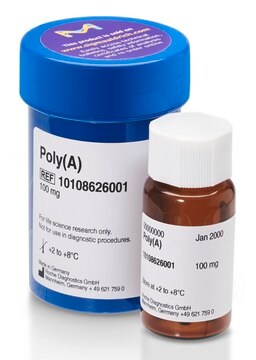
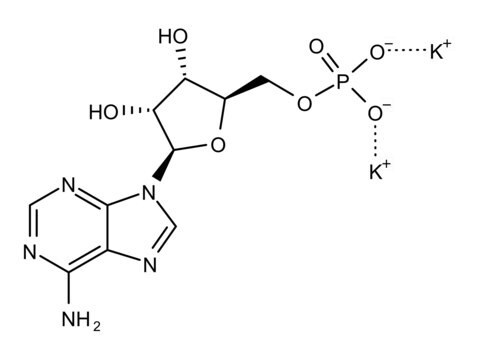
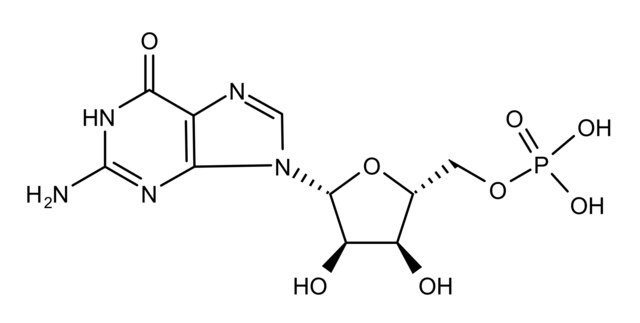
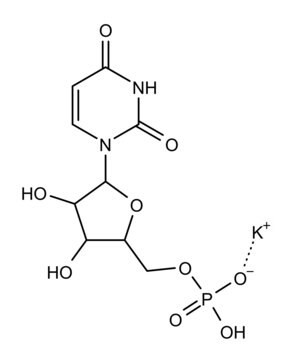
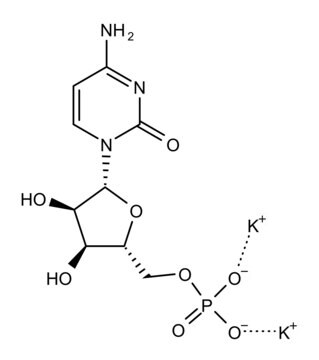


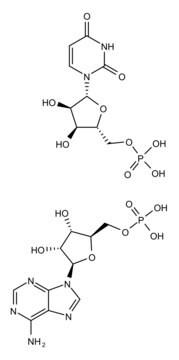
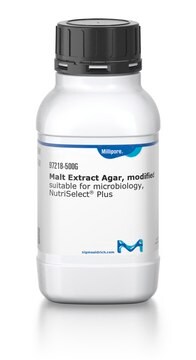
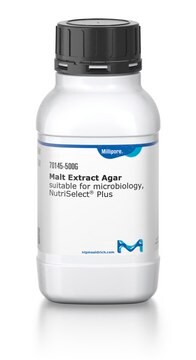
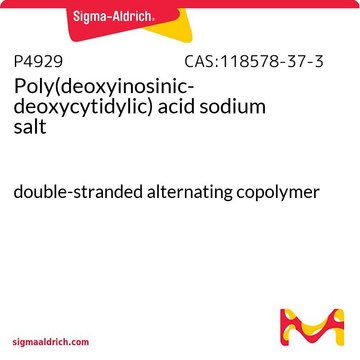
![Poly[d(I-C)] lyophilized, pkg of 10 U (10108812001 [A<sub>260</sub> units]), pkg of 50 U (11219847001 [A<sub>260</sub> units])](/deepweb/assets/sigmaaldrich/product/images/352/091/ef743cea-ccd8-44f1-8f3b-dec5a1e4f5d1/640/ef743cea-ccd8-44f1-8f3b-dec5a1e4f5d1.jpg)